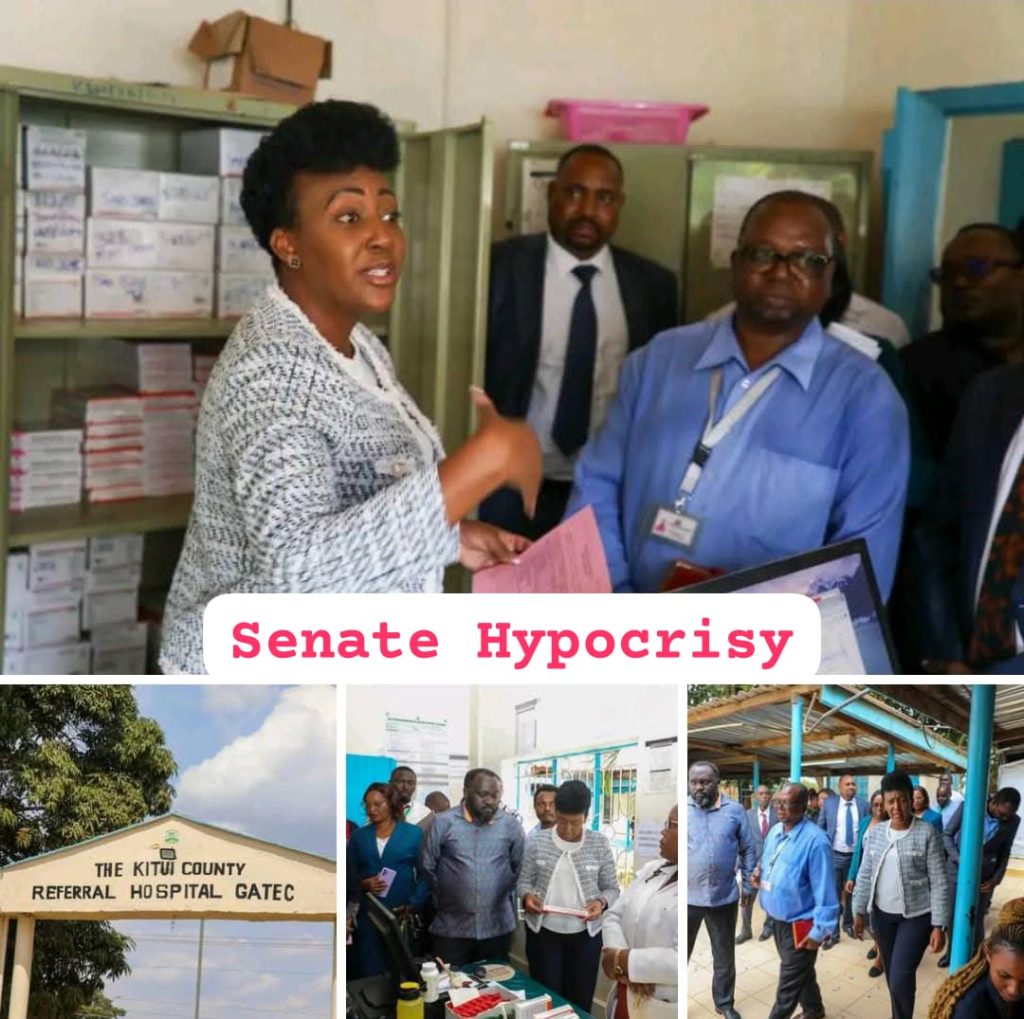
The Senate Health Committee’s recent lament over Kitui County’s health facilities — citing patients sharing beds, and staff shortages — exposes not county failure but the Senate’s own negligence. It is laughable and hypocritical for senators to roam counties using taxpayers’ money only to state the obvious, while ignoring the elephant in the room — the collapse of Kenya’s healthcare system under the new Social Health Authority (SHA) scheme. The Senate, as the upper house tasked with protecting devolution, has failed Kenyans by allowing a disastrous insurance model to cripple hospitals nationwide. The national government’s failure to remit SHA claims has driven private hospitals to stop treating patients, leaving thousands flooding already strained and underfunded public hospitals.
The root cause is crystal clear: 80% of healthcare functions were devolved to counties, yet only 20% of the resources followed. This financial mismatch has pushed counties to the brink. Instead of grandstanding about broken beds and crowded wards, the Senate Health Committee should be demanding equitable resource allocation and timely disbursement of SHA funds. If senators mean well, their focus should be on ensuring counties receive what they deserve to serve Kenyans effectively — not playing public relations tours that add zero value to healthcare delivery. The Senate’s oversight role has become reactive, not reformative.
Take Kitui County, for instance — one of the largest in Kenya, with vast health demands and facilities serving thousands beyond county borders. The Kitui County Referral Hospital alone is carrying a load heavier than most Level 6 hospitals in the region, especially after private facilities began rejecting SHA patients. Senator Mutinda’s committee conveniently ignored this context. The hospital cannot turn patients away; it must share what little is available and keep hope alive. Yet, even with overwhelming pressure, the Kitui County Government under Governor Dr. Julius Malombe is pushing forward — completing the stalled Maternal and Child Health (MCH) unit with a 261-bed capacity and constructing new local facilities to ease referral congestion.



Challenges do exist, but dismissing Kitui’s healthcare as “deteriorating” is a distortion of reality. Statistics and ground reports show steady improvement in service delivery and infrastructure compared to previous years. The growing patient influx is proof of renewed public trust, not decline. What Kenya needs is not sensational Senate field visits but genuine legislative action to strengthen devolution in healthcare. Until the Senate fixes the funding and fights for counties, its so-called concern for patients remains nothing but political theatre.







